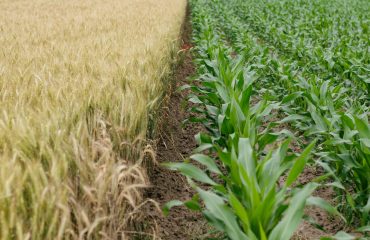I have written a few articles on Sustainability in Agriculture over the past few months. It is a hot topic in virtually all industries, and perhaps especially in agriculture.
This is a consumer driven topic. Why? Consumers want to know that they are purchasing food that helps the environment, improves their health, and improves the livelihood of all involved in the food production process.
What are the criteria for measuring sustainability? Enter ESG- the environmental, social and governance factors affecting the company and being effected by the company. When we first hear sustainability, we think of environmental: climate change, carbon emission, green products, air and water pollution and biodiversity. These are certainly high priority in many consumers minds. And, they are most directly connected to farmers as we are constantly interacting with our environment and want to improve it.
But, consumers are also concerned with social issues. These may include labor standards, employee engagement, pay and development, diversity and inclusion, and community relations. How is the company treating employees? How is the company improving the community?
Governance asks the questions of how does the company comply with regulations? Does it clearly respect and honor local and state laws, statutes and regulations? Is management clear on their legal and moral obligations? Is management willing to monitor, measure and report performance?
Companies in all industries are setting goals to meet these ESG standards and communicate them to consumers. Ag companies are no exception, and to some extent agriculture is higher visibility due to our direct effects on the land, water, soil and environment.
Does this ESG affect farmers? YES! First, if farmers are involved with food production, the food companies want their producers to meet their principles. In some cases, they have exclusive, identified producers and promote this move.
Second, there is a new coalition of farmland owners, managers and operators established as Leading Harvest.org. They have established 13 ESG principles to be applied to all of their farmland properties. These will affect all of their farmer tenants. To date they have enrolled over 2 million acres into their program.
These principles include 7 involving the environment: protection of water, crops; energy use, air quality and climate change; waste & material management; biodiversity to name a few.
They also include principles involving employees, farm labor; local communities; and legal & regulatory compliance. In addition to establishing these principles they will require 3rd party auditors to monitor progress.
So, yes sustainability is coming to the farm. While many farmers may already meet such principles, it will soon be necessary to report, audit and communicate those successes to landowners, vendors and their communities.
Source: Leading Harvest.org; AgWeb





